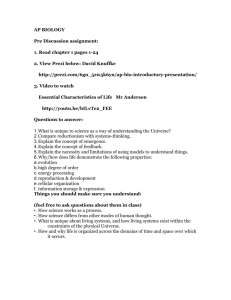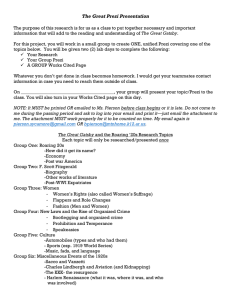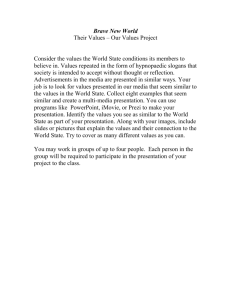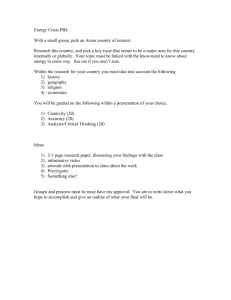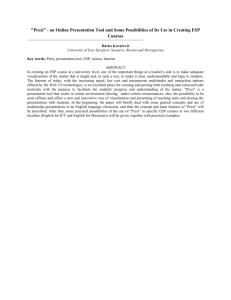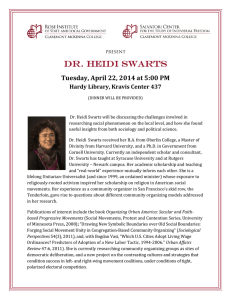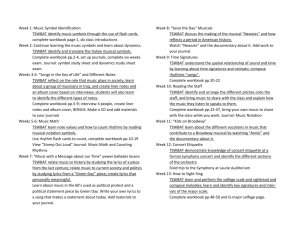HB-Lesson Plan (Love Lang., Conflict)
advertisement
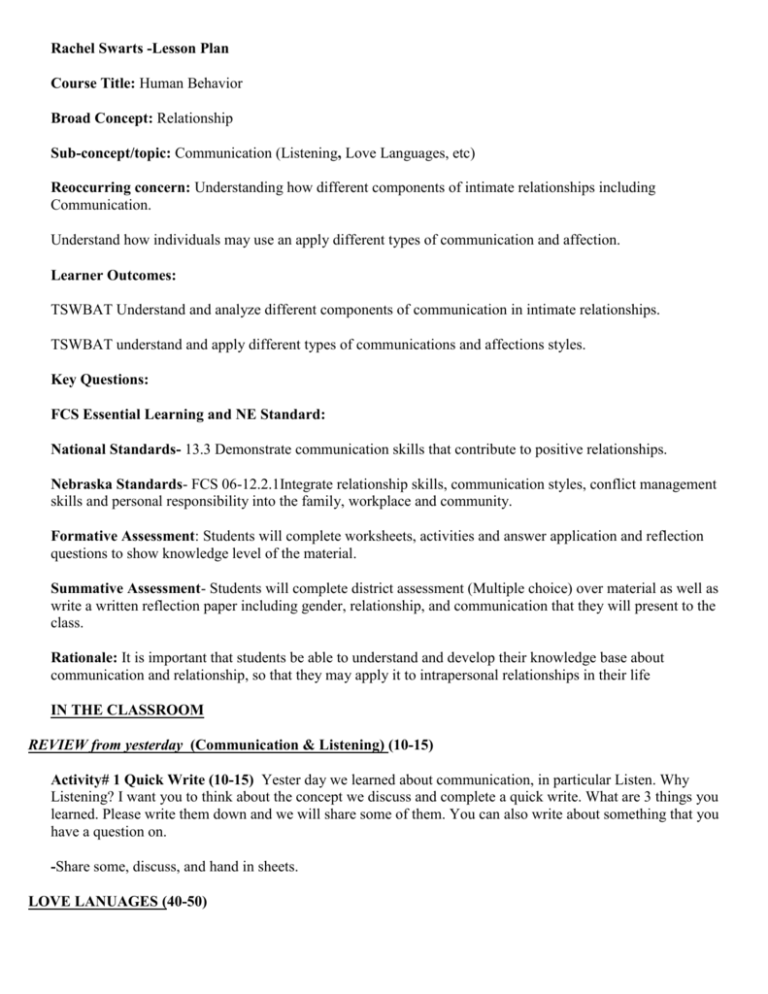
Rachel Swarts -Lesson Plan Course Title: Human Behavior Broad Concept: Relationship Sub-concept/topic: Communication (Listening, Love Languages, etc) Reoccurring concern: Understanding how different components of intimate relationships including Communication. Understand how individuals may use an apply different types of communication and affection. Learner Outcomes: TSWBAT Understand and analyze different components of communication in intimate relationships. TSWBAT understand and apply different types of communications and affections styles. Key Questions: FCS Essential Learning and NE Standard: National Standards- 13.3 Demonstrate communication skills that contribute to positive relationships. Nebraska Standards- FCS 06-12.2.1Integrate relationship skills, communication styles, conflict management skills and personal responsibility into the family, workplace and community. Formative Assessment: Students will complete worksheets, activities and answer application and reflection questions to show knowledge level of the material. Summative Assessment- Students will complete district assessment (Multiple choice) over material as well as write a written reflection paper including gender, relationship, and communication that they will present to the class. Rationale: It is important that students be able to understand and develop their knowledge base about communication and relationship, so that they may apply it to intrapersonal relationships in their life IN THE CLASSROOM REVIEW from yesterday (Communication & Listening) (10-15) Activity# 1 Quick Write (10-15) Yester day we learned about communication, in particular Listen. Why Listening? I want you to think about the concept we discuss and complete a quick write. What are 3 things you learned. Please write them down and we will share some of them. You can also write about something that you have a question on. -Share some, discuss, and hand in sheets. LOVE LANUAGES (40-50) Activity# 2 Love Languages Quiz (10-15) We all communicate in different ways. Sometimes this may cause miscommunication or conflict in relationship. How do you show affection? How do you communicate? Today we are going to learn about a theory called Love Languages. You will be taking a quiz to learn which language you speak and what that mean. Hand out quizzes. Read through each question thoroughly and circle which choice (A,B,C,D) applies the most. Make sure you understand the question, but don’t overthink it. Also, keep in mind all of you’re relationships. Activity# 3: Prezi (15-20) Discuss results. Now, let’s talk about what this means. Please fill out the second column as we go through the prezi. Don’t worry about the other columns or questions yet. Activity# 4 Movie Clips (10-15) Now I will be showing you a series of five clips. They are about 2 minutes a piece. Each one will be depicting and focusing on one of the categories. Make sure you fill it out what’s left in the 3rd column. Gift Giving: http://www.metacafe.com/watch/ane5Squu7Juhbmn4/sex_and_the_city_2008_exchanging_christmas_gifts//sex_and_the_city_2008_exchanging_ christmas_gifts/ Words of Affirmation: http://www.youtube.com/watch?v=k_M3GHJckv8 Acts of Service: http://www.wingclips.com/movie-clips/the-break-up/12-lemons Physical Touch: http://www.youtube.com/watch?v=qDcj8NGZLTA Quality Time: http://www.youtube.com/watch?v=eobuviHtfL4 Activity# 5 Apply and Assess (5-10): Please take the time to now fill in the last column and answer the questions on Note sheet. Discuss. Did you learn Something New about you or someone else? How does knowing someone ‘s love language help in communicating and maintaining a relationship? Activity# 6 Ch. 7 Overview (10-20) Conflict is inevitable in relationships whether it’s a friendship, teacher, classmate, parents, significant other, etc. What does conflict mean? For this next activity you will need to use the Becoming aware book to take notes for Ch. 7. When you are done, hang on to them, so we can go over the, but you can but your book away. Go Over. Activity# 7 “How Good of Communicator are You?” Survey (10-15) Now that you know a little background on conflict. Let’s see how good of a communicator are you. Read each scenario and answer with mostly True or Mostly False. Make sure you understand the statement, but don’t overthink it. Also, the survey has some questions that are work related. If you can’t quite relate in your current situation, you may answer as if you were in that situation (Hypothetically) or else apply them to the school environment. Discuss results. Conclusion: Great job today in learning about different communication styles and appling them. I urge you to keep this new information in your mind, because it will help you to better understand others and better communicate. If you want your family and friends to take the quiz, you can find it online or I could make you an extra copy. Tomorrow, we will continue to discuss conflict, how to work through them as well as other communication barriers. Resources: Chapter 4: Communication and Intimacy from Marriages and Families Textbook, 5th Ed. (David H. Olsen and John DeFrain) Ch. 7 Becoming Aware, 11th Edition (Velma Walker) Prezi and Note Guide by Rachel Swarts

